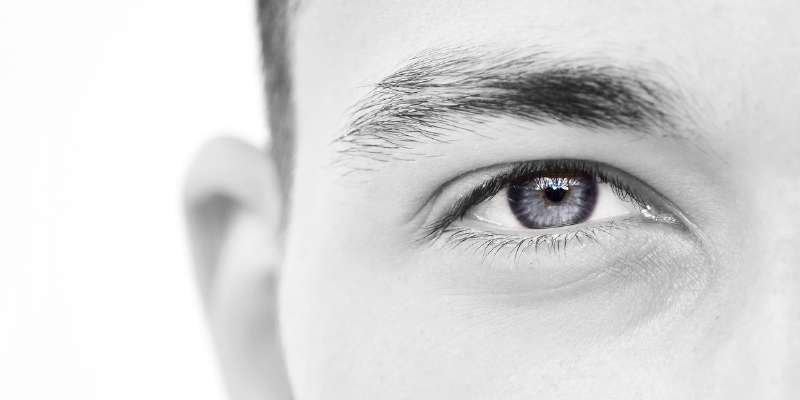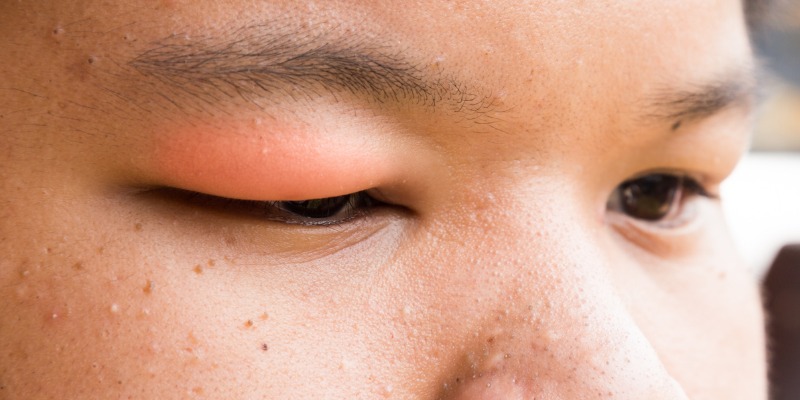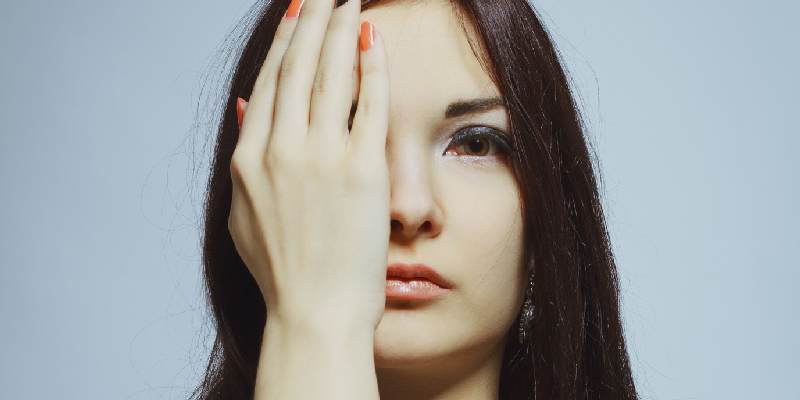Your eyelids are swelling and your eyes themselves feel dry and irritated. What is going on?!
Like millions of other Americans, you may be experiencing blepharitis – swelling of the eyelids. Though they feel similar, there are actually two different types of blepharitis – posterior and anterior. Each is slightly different in what causes it and how it should be addressed.
What Exactly is Posterior Blepharitis?
Posterior blepharitis is caused by blockage or dysfunction of the meibomian glands. These glands line the edges of your eyelids and secrete the special lipid layer that prevents your eyes from drying out.
Inflammation in these glands, or meibomitis, can occur when the glands become irritated by environmental factors, stressed by various health conditions, or infected with pathogens such as bacteria or mites. When this happens, the meibomian glands tend to get clogged by a waxy substance.
While this is not usually very serious, it can be rather uncomfortable and unsightly, and if the inflammation gets too severe it can cause damage to the eye. Symptoms include eyelids that are red, swollen, warm, or sore, and eyes that are dry, itching, irritated, or tired.
Fast, Temporary Relief
Quick remedies can be used to address symptoms and reduce discomfort in the short-term.
- Lubricating eye drops or artificial tears can moisten your eyes and decrease irritation associated with dry eye.
- Taking an over-the-counter anti-inflammatory drug such as acetaminophen (the primary ingredient in over-the-counter drugs such as Tylenol™) or ibuprofen to reduce swelling and inflammation-related pain.
Chronic, or long-term or recurring, blepharitis requires more stringent measures to clear up the source of the inflammation.
How Does a Massage Sound?
A simple at-home solution for posterior blepharitis is to warm the affected eye for five minutes at a time. You can use a warm compress, facial mask, or a washcloth dampened with warm water. This helps soothe the area, encourage blood flow, and facilitate the unclogging of the meibomian glands.
Gently massaging the upper eyelids downward and the lower eyelids upward, while the area is being warmed, can also be helpful in this regard.
A more rigorous approach to the heating/massaging method is lid scrubbing. You can do this after showering or bathing, while your skin is still warm and moist. Use a warm water-moistened cotton bud or Q-tip to scrub along the edge of the affected lid. Be very careful not to touch the surface of your eyeball, and if you are hurting, stop the rubbing.
We recommend having a doctor or optician show you how to perform a lid scrub before attempting it yourself.
Exercise your eyelids
The physical act of blinking is important for stimulating tear production and wiping tears across the eyes. In some cases, meibomian gland dysfunction can be started or worsened by not blinking frequently enough. If you stare at a screen like a computer or TV for too long you probably aren’t blinking as often as you should. Therefore, some doctors recommend blinking exercises to help improve tear production and eye lubrication. To do these exercises, focus on blinking at least twenty times in a row, four times a day.
Keep them clean!
Maintaining proper hygiene is important for relieving meibomitis and posterior blepharitis. Many doctors recommend washing your eyes with baby shampoo diluted in warm water as a gentle daily cleansing method. While this does help remove irritants and can help unclog glands, simply washing with soap and water does not get rid of any underlying infections.
What you need is something that will provide a deep clean. Cliradex products, which contain 4-terpineol, have been formulated to do just that. 4-terpineol is a natural compound found in tea tree essential oil and is powerful in eliminating mite infestations. For established infestations, Cliradex towelettes are best. They are strong enough to kill mites while still being gentle on your delicate facial skin. Cliradex Light foaming cleanser has a lower concentration of 4-terpineol and can be used as a part of your daily ocular hygiene routine, to help you avoid problems in the first place.
4-terpineol has also been demonstrated to promote lower levels of inflammation, making it a valuable ally in the fight against a number of conditions.
Natural, vegan, and preservative-free, Cliradex is your choice for soothing results.
Resources:
- Gao, Y.Y; Di Pascuale, M.A; Elizondo, A; Tseng, S.C. 2007. “Clinical treatment of ocular demodecosis by lid scrub with tea tree oil.” Cornea 26(2): 136-143.
- Hun, S.T.H; Woo, D.M; Chong, C.W.K; Liu, Y; Francis, K.E; Shah, S.A; Agar, A; Francis, I.C. 2015. “Utilisation of a Novel Test to Measure Severity and Treatment Efficacy of Posterior Blepharitis.” J. Ophthalmol.
- Qiao, J; Yan, X. 2013. “Emerging treatment options for meibomian gland dysfunction.” Clin Ophthalmol. 7: 1797-1803.
- Toyos, R; McGill, W; Briscoe, D. 2015. “Intense pulsed light treatment for dry eye disease due to meibomian gland dysfunction; a 3-year retrospective study.” Photomed Laser Surg. 33(1): 41-46.




